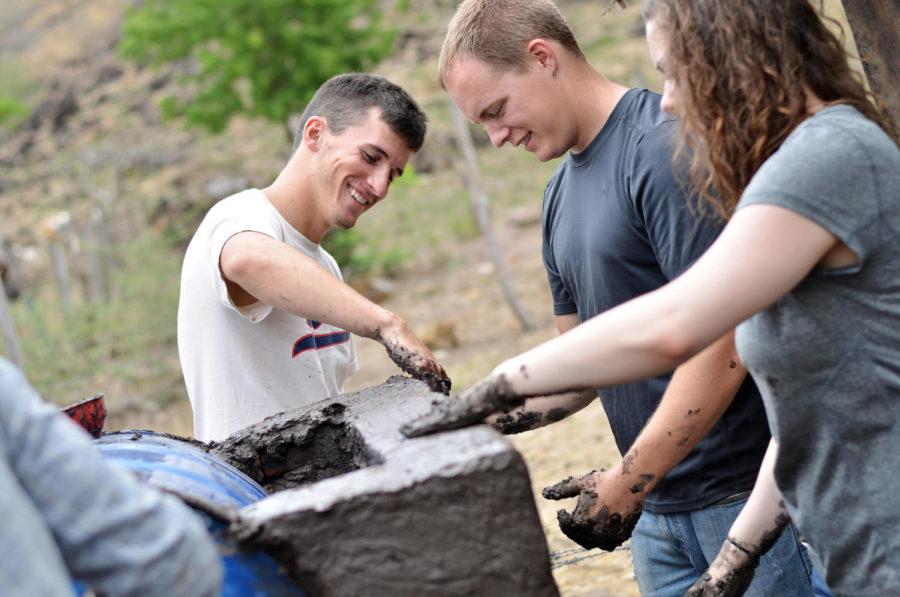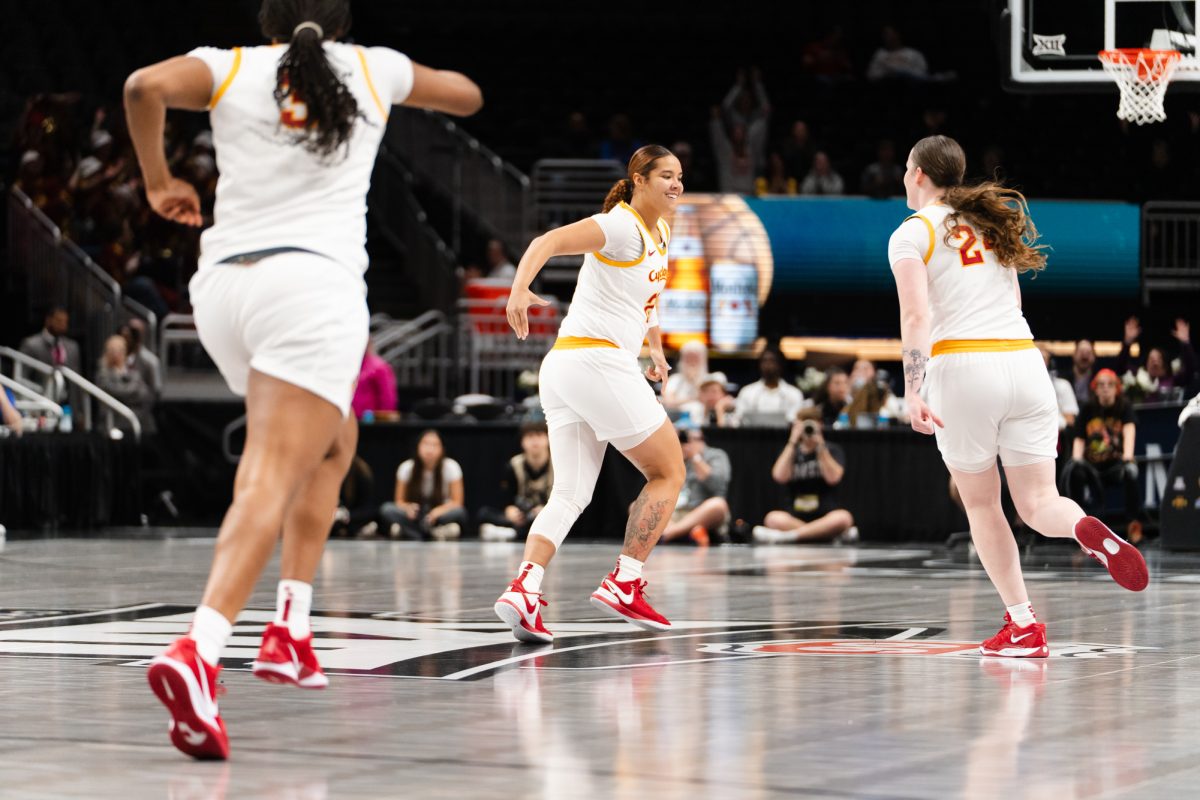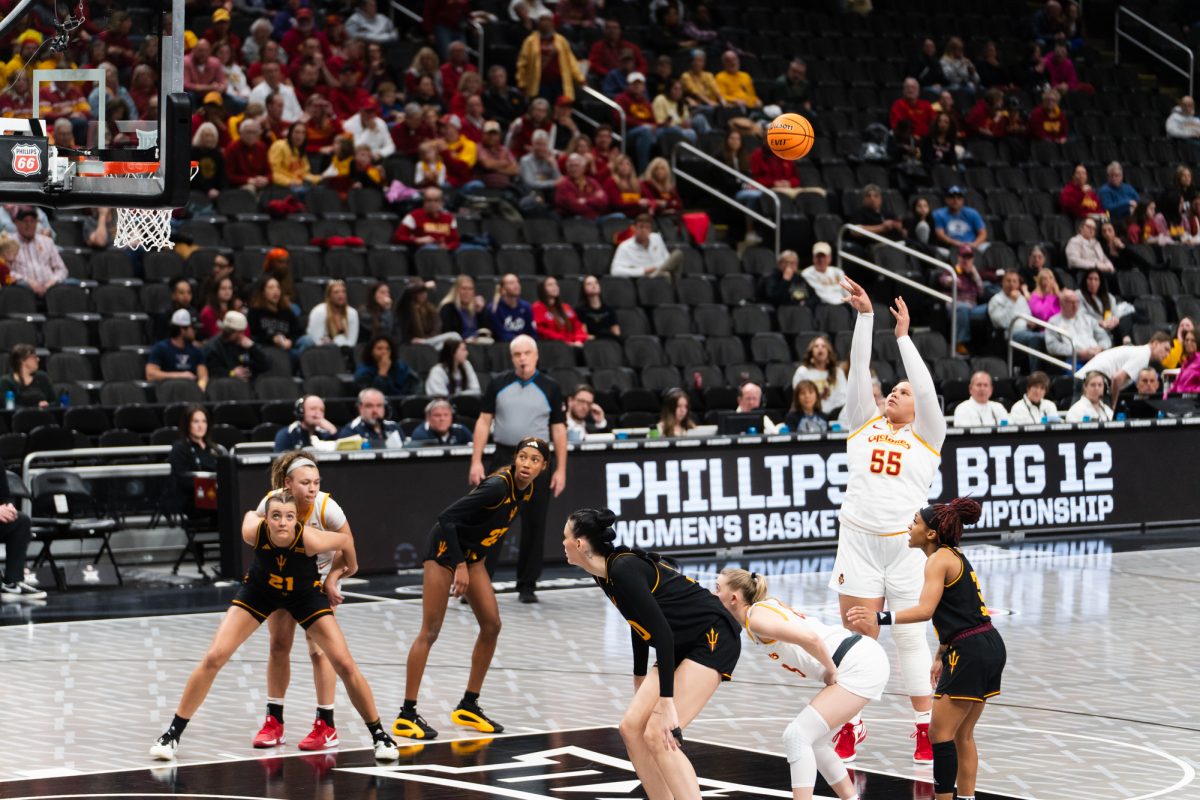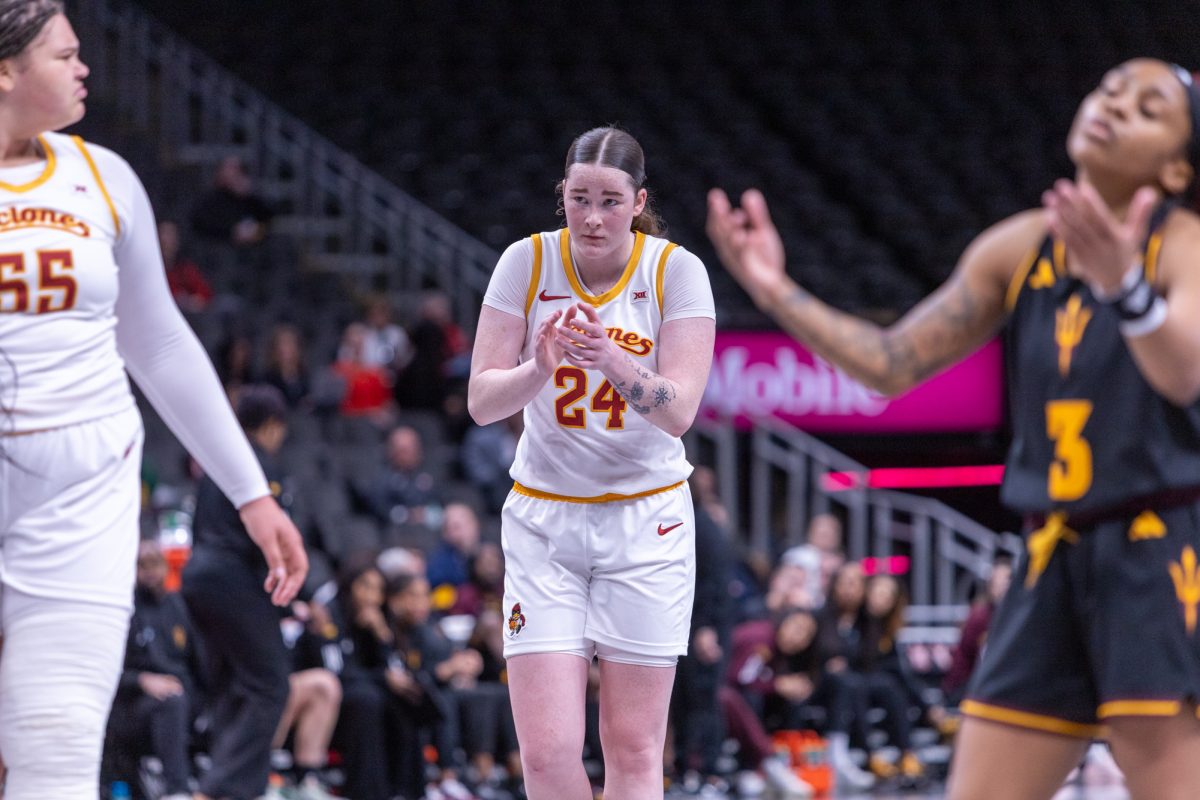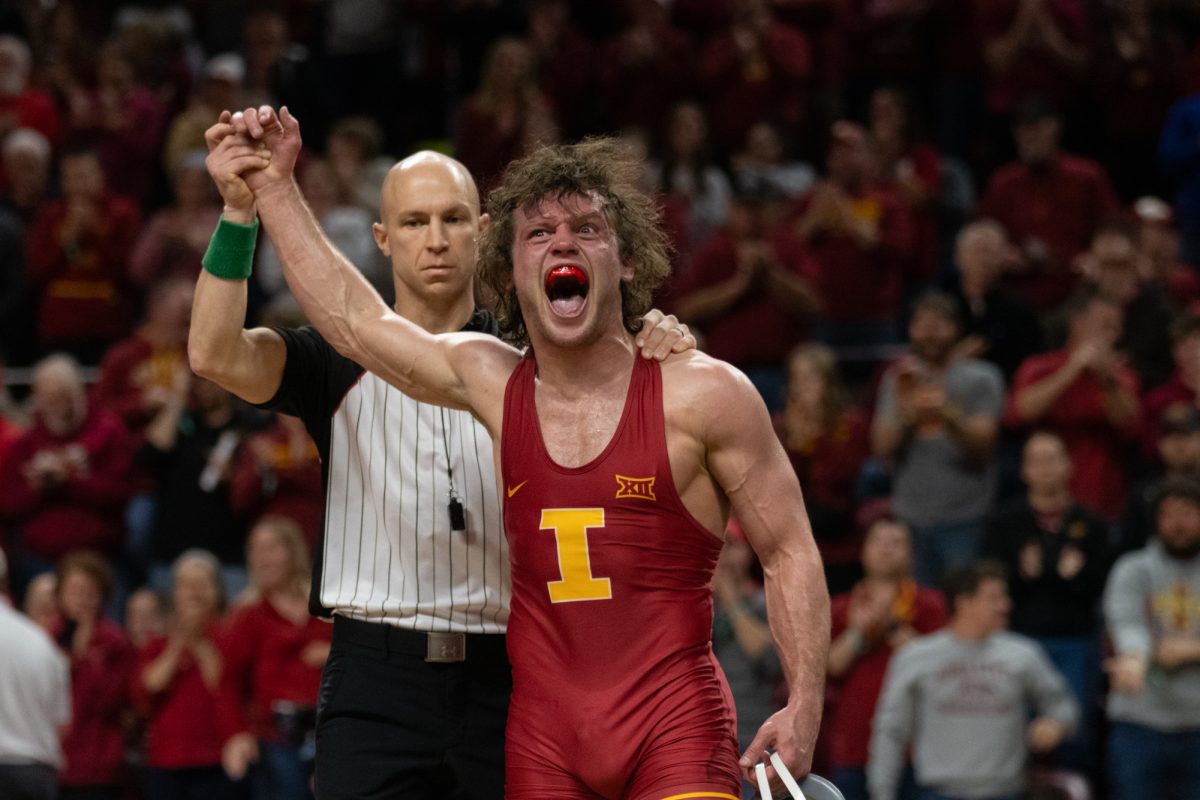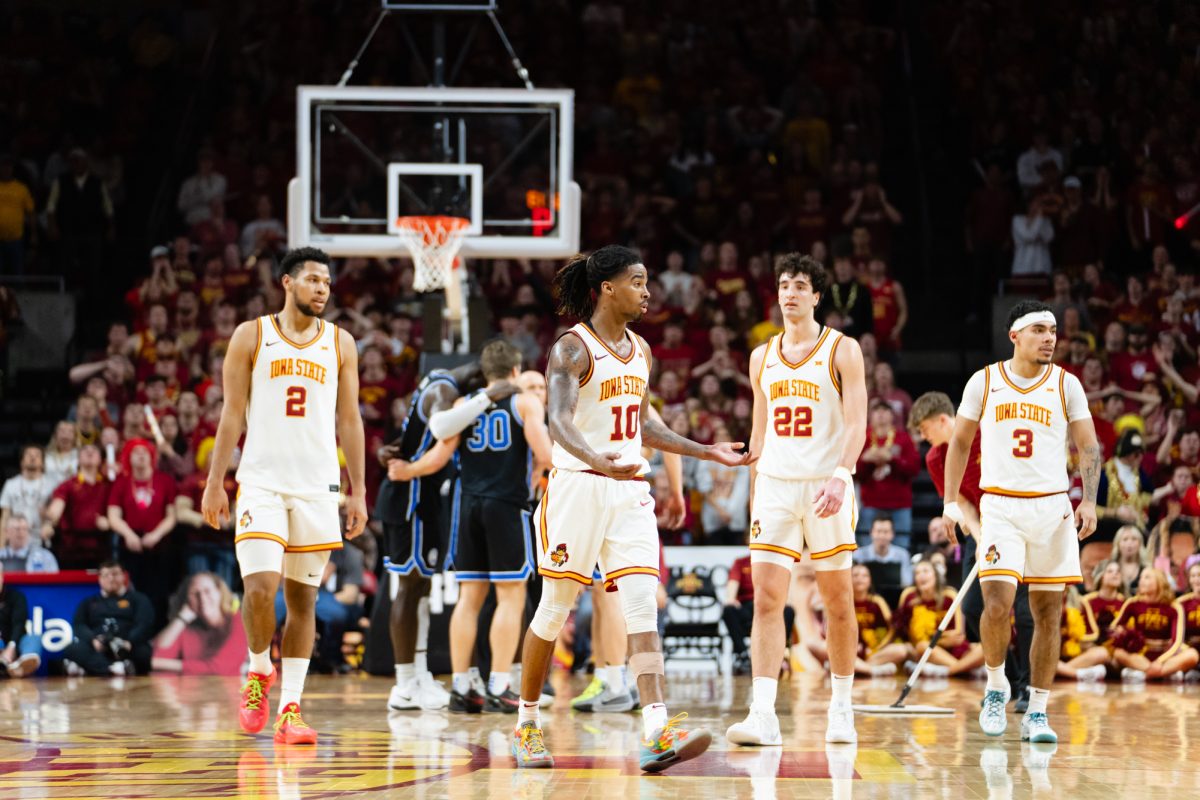ISU students changing lives in Nicaragua
Former EOS International project students Eric Mootz, Alicia Maher and Thomas Howlett work on a project in Nicaragua.
September 5, 2017
Armed with less than $100 and a recycled waste product, Iowa State students are changing lives in Nicaragua.
Wes Meier, a co-founder and CEO of EOS (Emerging Opportunities for Sustainability) International, a non-profit organization that promotes the use of sustainable energies in Nicaragua, said that he saw a need for change in Nicaragua after visiting the country with the Peace Corps.
“Nicaragua is having problems with deforestation, which is leading to the rising cost of wood, so it’s going to become more difficult, and more difficult for families, to buy wood,” said Marisa Dizonno, a sophomore in mechanical engineering.
This means that low-income families struggle to have the wood necessary for cooking and warmth.
With a team of four students, Dizonno was challenged to create a stove that was designed to burn a sustainable fuel source and have a better ventilation system than the most popular stove in Nicaragua.
To be successful, the stove also had to be more affordable than that which currently dominates the market.
The next challenge for the team was finding an alternative heat source.
“The main crop in Nicaragua is rice,” she said. “Rice is coated in a husk, so they have piles of rice husk everywhere.”
Prior to leaving for Nicaragua, Dizonno and her team purchased rice husks online to experiment with their new fuel source. When met with difficulties in igniting the material, which Dizonno described as “coarse and super rough,” the team had to find a way to make the husks burn.
Through a process of trial and error, the team found that melted candle wax was the solution.
“When we told people what we were trying to do with the rice husks, they considered it garbage,” Dizonno said.
By molding the mixture of husks and candle wax into the shape of a log, the team decided, people might not be so hesitant to use what they saw as a waste product as a heat source.
Meier, an Iowa State alumni, said that he wanted to get Iowa State students involved in these projects to allow them to experience a different learning and cultural experience, while also helping locals.
“These students are truly engaged,” said Gloria Starns, a senior lecturer in mechanical engineering at Iowa State. “They live with [locals] for a month and really get to know them.”
Through the relationships that the students form with locals, Starns said, they are able to learn about their lives and identify problems that need to be solved. Taking these lessons and creating solutions is what she described as “empathetic design,” and it’s something that students quickly find a passion for.
“It’s very important that their skills are being used to help fulfill lives,” Starns said. “We really do want to see [Nicaraguans] succeed and be self-sufficient.”
Before departing for Nicaragua, students spend two weeks on Iowa State’s campus, learning about the country and its culture, in addition to being introduced to some challenges that the country is facing.
“I wasn’t too familiar with what Nicaragua was like prior to this,” Dizonno said. “So I had a hard time seeing that they were having these problems.”
Knowing ahead of time that the team would need to offer an alternative heat source, Dizonno said that she was surprised to learn about health issues that women were facing because of poor ventilation systems on stoves during interviews with locals.
“We lived with these people and learned what they needed,” she said. “Then we changed the stove if we needed to.”
After their return to Ames, Dizonno and her team made final modifications to their design and submitted their plans, along with a budget report, to EOS International.
“Now it’s out of our hands as it moves forward,” she said. “This experience definitely verified my passion for the environment and sustainability and just trying to make the world a better place.”


